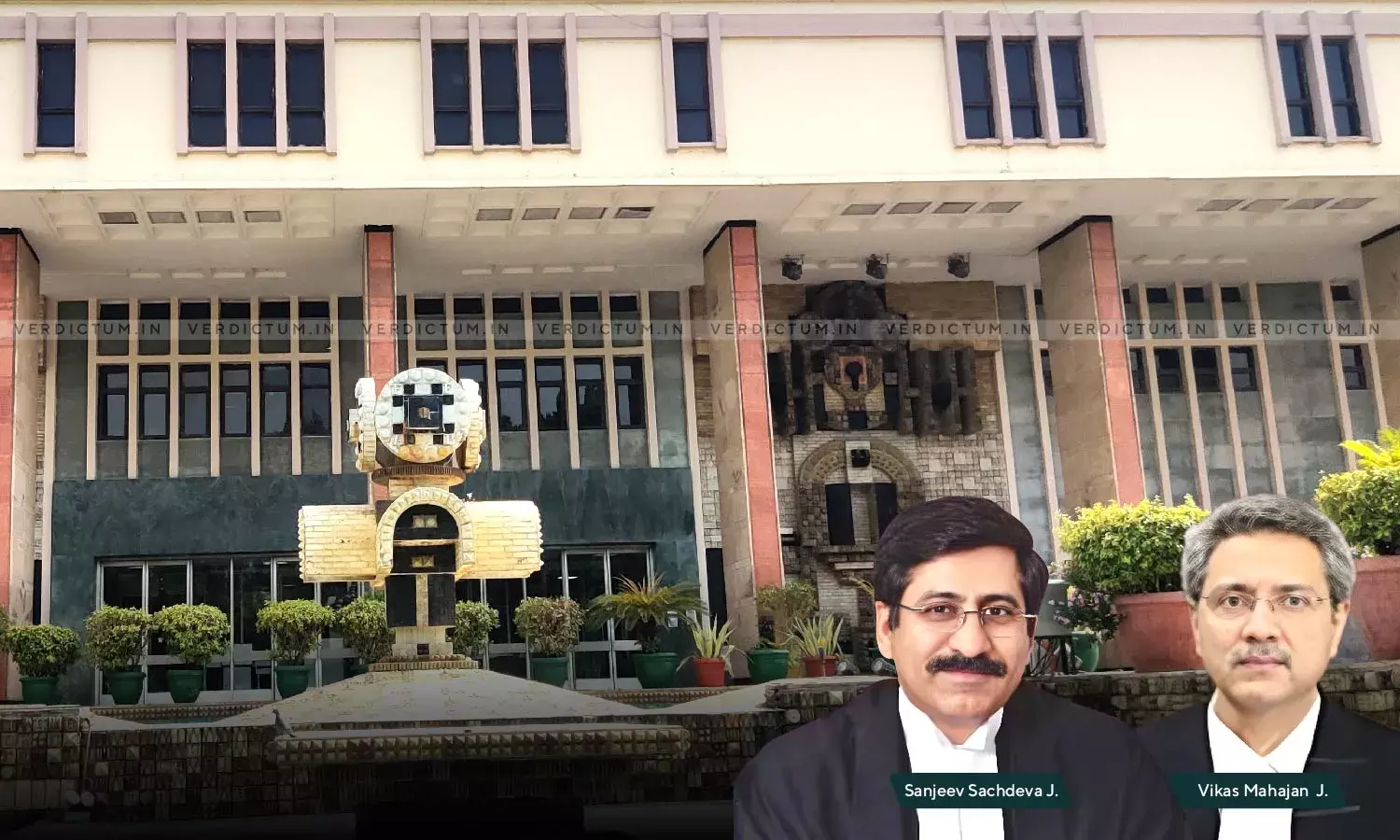Limitation Period For Filing Appeal Against Family Court’s Order Is Thirty Days, Delay Can Be Condoned If Sufficient Cause Is Shown: Delhi HC

The Delhi High Court held that the limitation period for filing an appeal against the order or judgment of the Family Court is thirty days but delay can be condoned if sufficient cause is shown for delay under Section 5 of the Limitation Act, 1963 (LA).
The Court allowed the Appellant to file an appropriate application seeking condonation of delay. The Appellant had filed an Appeal against the judgment of the Family Court, whereby the Divorce Petition filed by the Respondent under Section 13(1)(ia) of the Hindu Marriage Act, 1955 (HMA) was allowed. However, it was contended that such an appeal is not sustainable under Section 19(3) of the LA.
The Bench comprising Justice Sanjeev Sachdeva and Justice Vikas Mahajan observed, “In view of the above, the preliminary objection is disposed of holding that the period of limitation for filing an appeal against a judgment or order of the Family Court is thirty days. However, for sufficient cause to be shown, the delay in filing can be condoned under Section 5 of the Limitation Act, 1963”.
Advocates Vineet Jhanji and Imran Moulaey appeared for the Appellant, and Advocate Suman Arora appeared for the Respondent.
A Matrimonial Appeal was filed challenging the judgment of the Family Court whereby the Divorce Petition filed by the Respondent under Section 13(1)(ia) of the Hindu Marriage Act, 1955 (HMA) was allowed. The Respondent contended that the appeal is barred, citing section 19(3) of the Family Court Act (FC Act), which states that it must be filed within 30 days. However, the Appellant contended that the appeal was filed under Section 28 of the HMA, allowing a 90-day time limit.
The Court noted that the issue to ascertain was “what is the period of limitation for filing an appeal against a decree or order passed by a Family Court under the Hindu Marriage Act, 1955”.
The Court noted that any orders or decrees made by a court in a legal case, except for temporary orders, can be appealed within 90 days. However, there is a discrepancy between the Hindu Marriage Act (HMA), which sets a 90-day window for appeal, and the Family Courts Act (FC Act), which sets a 30-day period for appeal. In areas where the State Government has established a family court, the petition must be filed before the Family Court and not the District Court. Family Court Judges hold the same rank as District Judges but are designated as Family Court Judges. The Bench observed that an appeal can be made from every order and judgment of the Family Court to the High Court, which will be heard by a bench of two or more judges, except for the Union Territories of Jammu & Kashmir and Ladakh.
The Court referred to the Supreme Court Judgment in the case of Arunoday Singh v Lee Anne Elton [SLP (c) No.10751 of 2021] and noted that the provision in Section 20 of the FC Act gives overriding effect, meaning the period of limitation for filing an appeal against a judgment or order of a Family Court is 30 days instead of 90 days. The Court reiterated that “rules for the time being in force” refers to rules in force at any given time, not just at a fixed point in time. Therefore, the limitation period cannot be frozen to the time when the regulations were promulgated. The Court held that while the limitation period is 30 days, a delay in filing can be condoned under Section 5 of the Limitation Act, 1963 (LA), with sufficient cause.
“The Supreme Court in Arunoday Singh (supra) has thus held that an appeal under section 19 of the Family Courts Act has to be filed within thirty days even though it provides for a shorter period of limitation than the Special Marriage Act and the non-obstante provision of Section 20 of the Family Courts Act gives overriding effect to the Family Courts Act and thus the period of limitation for filing an appeal from a judgment and order of a Family Court constituted under the Family Courts Act would be 30 days and not 90 days. The Supreme Court in Arunoday Singh (supra) further held that Section 5 of the Limitation Act would apply”, the Bench noted.
The Bench noted that the appeal was filed 49 days after the 30-day limit prescribed by Section 19 of the FC Act. The Court directed the Appellant to file an appropriate application seeking condonation of delay within 15 days from the date of the Judgment.
Accordingly, the Court listed the matter before the Roster Bench for directions for October 16.
Cause Title: Pallavi Mohan Alias Pallavi Menon v Raghu Menon

